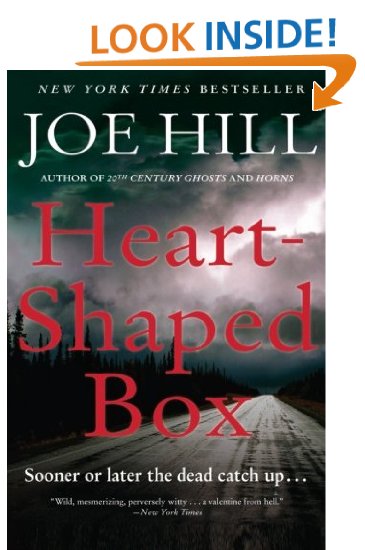
There are many terrifying moments along the way, and considerable personal injury.īut what raises Heart-Shaped Box above the usual horror schlock-fests are the ways in which it ties itself and its horrors to deeper human concerns.

Heart-Shaped Box being a novel rather than a short story, getting rid of the ghost will take more than burning up his suit and taking to the road: As Judas discovers alongside a girlfriend who proves less disposable than he thought, the road to the ghost’s secrets is leading them south, to Florida and then to Louisiana, where Judas’ family lives. Unlike most eBay hoaxes, this one is for real, and it has a very personal issue to settle with Judas. All harmless enough, until -one day- Judas end up buying a ghost on-line, and having it delivered to his house. After years on tour, Judas Coyne has settled for semi-retirement, collecting disposable girlfriends and macabre mementos. It starts off with a strong lead character, a heavy-metal icon way past his prime living out a quiet life in upstate New York. Along the way, it touches upon other sub-genres: It’s a rock-and-roll novel, a road novel and a southern gothic family tragedy. Joe Hill’s debut Heart-Shaped Box is exactly the kind of novel that the horror genre should aspire to: It’s recognizably a horror story (what with a vengeful ghost and all), but it uses the framework of an implacable menace to take its characters on a deeper journey of self-discovery.

The monster-kills-people type of horror is only the easiest story the genre can tell, and the best examples of the genres manage to do a lot more than that.

But that’s the kind of assumption that leads to formulaic extruded product and exactly the kind of thinking that practically destroyed horror as a genre publishing category in the early nineties. Just grab a disgusting monster, sick it on unsuspecting characters and let the deaths pile up.


 0 kommentar(er)
0 kommentar(er)
